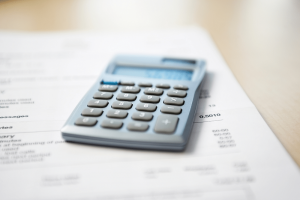The Ultimate Guide to Council Tax for Tenants
They say that life, death and taxes are the only certainties in life, but we disagree. Once you enter the adult world, paying council tax is an inevitability.
Tenants Contents Insurance from just £3.12
- ✓ Covered up to £30,000
- ✓ Flexible monthly policies
- ✓ No hidden fees
If you’re wondering what council tax entails and how it works, you’ve come to the right place. In this guide, we’ll cover everything you need to know about council tax so that you have the lowdown on your local council’s taxation system.
What is council tax?
Council tax is, as the name says it, a type of tax each household in England, Wales and Scotland pays to the local authorities to cover the costs of certain services within your area. Such services include police and fire services, road repairs, water and sewerage, and waste collection.
How is council tax calculated?
Every property is automatically valued by the Valuation Office Agency (VOA). The VOA evaluates each home according to several factors, such as property location, number of bedrooms and overall size. It then categorises each home into a band that ranges from A to H. A involves the lowest cost and band H the highest.

What is my council tax band?
If you are moving house, most property listings state the council tax band, but you can always ask the marketing agent. Alternatively, you can check-in property’s council tax band on the UK Government official website.
How do council tax payments work?
You should receive a communication from your local council once you’ve registered at your new address. They will inform you of the yearly costs associated with the council tax band of that property, including on which day of the month you need to pay your bill.
You can choose to pay monthly, usually in 10 instalments, or you can settle the entire amount in one go. Paying can usually be done online. However, many post offices, banks and/or newsagents offer other methods of payment.
Though you don’t pay the council to the landlord directly, it’s still a bill that needs paying. If you don’t pay it, you’ll fall into arrears with the local council, who can then choose to send bailiffs round.
If you are struggling to meet the monthly payments, contact your council and they may offer you assistance, such as changing the number of instalments from 10 to 12, thereby further spreading the cost over the year.
Can council tax increase?
Each council can increase the amount paid by up to two per cent each year, without the need of holding a referendum. Should the need to arise for a larger increase, the local authorities must call for a local referendum.
Your council tax amount can also change if the VOA re-values your property if there has been a change in size or use or character of the building and surrounding area, such as changing a single family home into multiple flats.

Who is exempt from paying council tax?
Council tax bills are typically based on a two-person household. If you are living by yourself or no one else in your household counts as an adult, you can apply for single occupancy, which entitles you to a 25% discount. If no one living in your home, including yourself, counts as an adult, you’ll receive a 50% discount.
Who doesn’t count as an adult when paying council tax?
- Children under the age of 18
- People on some apprenticeships
- 18 and 19-year-olds in full-time education
- Full-time college and university students
- Young people under 25 who get funding from the Skills Funding Agency or Young People’s Learning Agency
- Student nurses
- Foreign language assistants registered with the British Council
- People with a severe mental impairment
- Live-in carers who look after someone who is not their partner, spouse, or child under 18
- Diplomats
Understanding your council tax bill and what it provides will ensure a smoother renting process. Like with all other bills, it’s good to keep on top of your council tax. And with our tips, you shouldn’t have any problems doing just that.